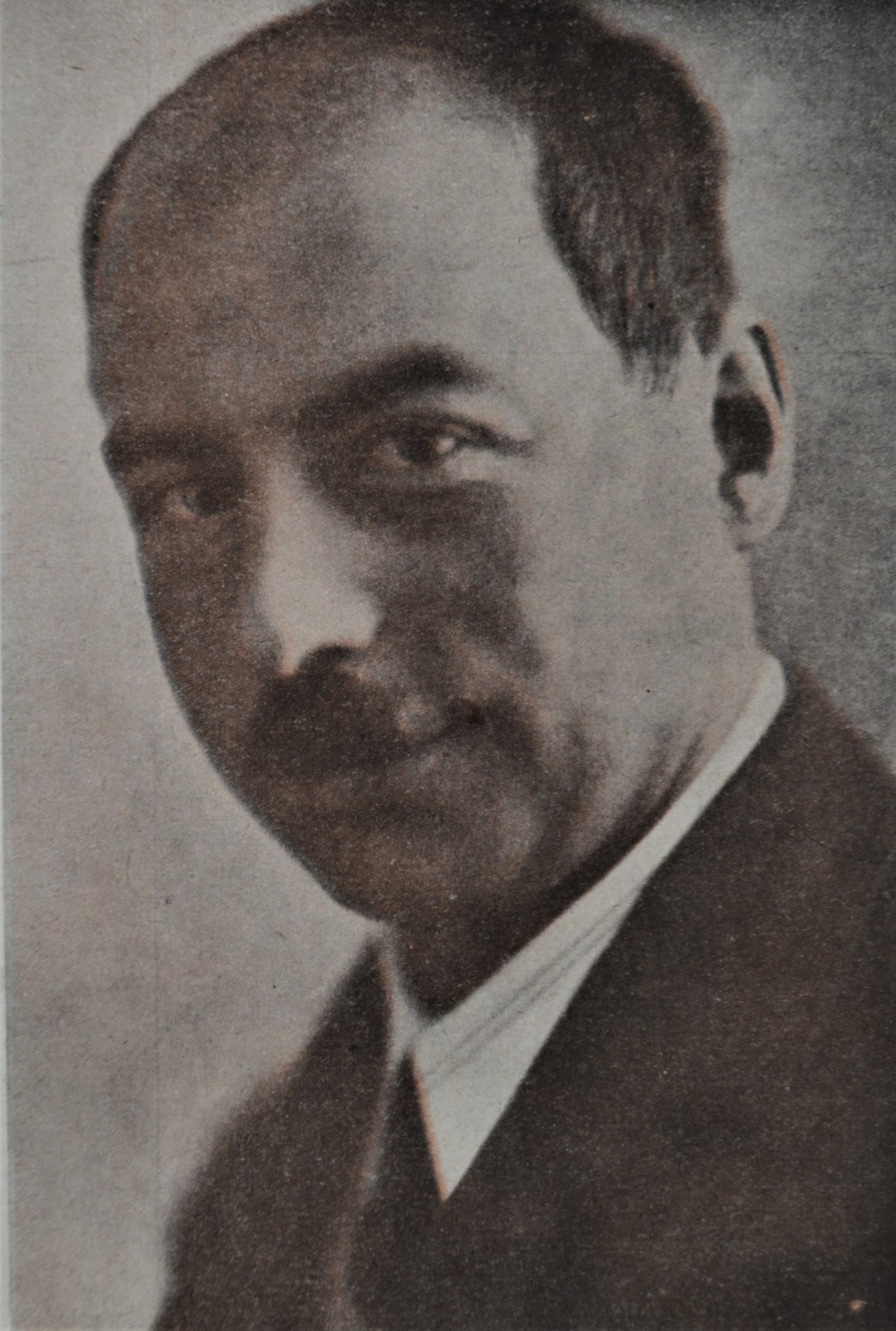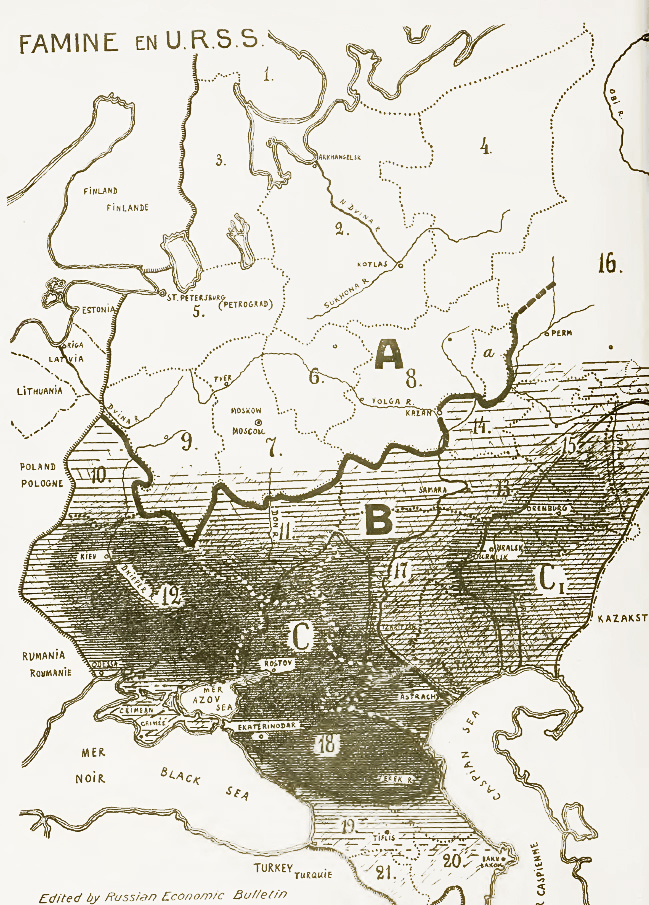|
William Henry Chamberlin
William Henry Chamberlin (February 17, 1897 – September 12, 1969) was an American historian and journalist. He was the author of several books about the Cold War, communism, and foreign policy, including ''The Russian Revolution 1917-1921'' (1935), which was written in Russia between 1922 and 1934 while he was the Moscow correspondent of ''The Christian Science Monitor''. He had communist sympathies until he lived in the Soviet Union, when he gradually turned anticommunist. He predicted that intervention in World War II would help communism in Europe and in Asia and so he was a non-interventionist. Early life and education Chamberlin was born in Brooklyn and educated in Pennsylvania schools and later at Haverford College. At 25, he moved to Greenwich Village and was deeply affected by the cultural bohemianism and Bolshevik politics there. He worked for Heywood Broun, the book editor of the ''New York Tribune''. He also published under the pseudonym of A.C. Freeman and was a so ... [...More Info...] [...Related Items...] OR: [Wikipedia] [Google] [Baidu] |
Brooklyn, New York
Brooklyn () is a borough of New York City, coextensive with Kings County, in the U.S. state of New York. Kings County is the most populous county in the State of New York, and the second-most densely populated county in the United States, behind New York County (Manhattan). Brooklyn is also New York City's most populous borough,2010 Gazetteer for New York State . Retrieved September 18, 2016. with 2,736,074 residents in 2020. Named after the Dutch village of Breukelen, Brooklyn is located on the w ... [...More Info...] [...Related Items...] OR: [Wikipedia] [Google] [Baidu] |
Russian Review
''The Russian Review'' is an independent peer-reviewed multi-disciplinary academic journal devoted to the history, literature, culture, fine arts, cinema, society, and politics of the Russian Federation, former Soviet Union and former Russian Empire. The journal was established in 1941 and is published quarterly by Wiley-Blackwell for the Contact Center for Russian, East European & Eurasian Studies at the University of Kansas. The former editor is Dr. Eve Levin, University of Kansas who retired and was Replaced by Erik R. Scott in 2020. The journal's board of trustees is not aligned with any national, political, or professional association. External links''The Russian Review''@ Wiley-Blackwell''The Russian Review''@ JSTOR JSTOR (; short for ''Journal Storage'') is a digital library founded in 1995 in New York City. Originally containing digitized back issues of academic journals, it now encompasses books and other primary sources as well as current issues of j ... Area ... [...More Info...] [...Related Items...] OR: [Wikipedia] [Google] [Baidu] |
Cambridge, Massachusetts
Cambridge ( ) is a city in Middlesex County, Massachusetts, United States. As part of the Boston metropolitan area, the cities population of the 2020 U.S. census was 118,403, making it the fourth most populous city in the state, behind Boston, Worcester, and Springfield. It is one of two de jure county seats of Middlesex County, although the county's executive government was abolished in 1997. Situated directly north of Boston, across the Charles River, it was named in honor of the University of Cambridge in England, once also an important center of the Puritan theology embraced by the town's founders. Harvard University, the Massachusetts Institute of Technology (MIT), Lesley University, and Hult International Business School are in Cambridge, as was Radcliffe College before it merged with Harvard. Kendall Square in Cambridge has been called "the most innovative square mile on the planet" owing to the high concentration of successful startups that have emerged in the vicinity ... [...More Info...] [...Related Items...] OR: [Wikipedia] [Google] [Baidu] |
Japanese Militarism
refers to the ideology in the Empire of Japan which advocates the belief that militarism should dominate the political and social life of the nation, and the belief that the strength of the military is equal to the strength of a nation. History Rise of militarism The military had a strong influence on Japanese society from the Meiji Restoration. Almost all leaders in Japanese society during the Meiji period (whether in the military, politics or business) were ex''-samurai'' or descendants of ''samurai'', and shared a set of values and outlooks. The early Meiji government viewed Japan as threatened by western imperialism, and one of the prime motivations for the '' Fukoku Kyohei'' policy was to strengthen Japan's economic and industrial foundations, so that a strong military could be built to defend Japan against outside powers. The rise of universal military conscription, introduced by Yamagata Aritomo in 1873, along with the proclamation of the Imperial Rescript to Soldiers ... [...More Info...] [...Related Items...] OR: [Wikipedia] [Google] [Baidu] |
East Asia
East Asia is the eastern region of Asia, which is defined in both geographical and ethno-cultural terms. The modern states of East Asia include China, Japan, Mongolia, North Korea, South Korea, and Taiwan. China, North Korea, South Korea and Taiwan are all unrecognised by at least one other East Asian state due to severe ongoing political tensions in the region, specifically the division of Korea and the political status of Taiwan. Hong Kong and Macau, two small coastal quasi-dependent territories located in the south of China, are officially highly autonomous but are under Chinese sovereignty. Japan, Taiwan, South Korea, Mainland China, Hong Kong, and Macau are among the world's largest and most prosperous economies. East Asia borders Siberia and the Russian Far East to the north, Southeast Asia to the south, South Asia to the southwest, and Central Asia to the west. To the east is the Pacific Ocean and to the southeast is Micronesia (a Pacific Ocean island group, classifi ... [...More Info...] [...Related Items...] OR: [Wikipedia] [Google] [Baidu] |
US Bill Of Rights
The United States Bill of Rights comprises the first ten amendments to the United States Constitution. Proposed following the often bitter 1787–88 debate over the ratification of the Constitution and written to address the objections raised by Anti-Federalists, the Bill of Rights amendments add to the Constitution specific guarantees of personal freedoms and rights, clear limitations on the government's power in judicial and other proceedings, and explicit declarations that all powers not specifically granted to the federal government by the Constitution are reserved to the states or the people. The concepts codified in these amendments are built upon those in earlier documents, especially the Virginia Declaration of Rights (1776), as well as the Northwest Ordinance (1787), the English Bill of Rights (1689), and Magna Carta (1215). Largely because of the efforts of Representative James Madison, who studied the deficiencies of the Constitution pointed out by anti-fede ... [...More Info...] [...Related Items...] OR: [Wikipedia] [Google] [Baidu] |
Nazism
Nazism ( ; german: Nazismus), the common name in English for National Socialism (german: Nationalsozialismus, ), is the far-right totalitarian political ideology and practices associated with Adolf Hitler and the Nazi Party (NSDAP) in Nazi Germany. During Hitler's rise to power in 1930s Europe, it was frequently referred to as Hitlerism (german: Hitlerfaschismus). The later related term "neo-Nazism" is applied to other far-right groups with similar ideas which formed after the Second World War. Nazism is a form of fascism, with disdain for liberal democracy and the parliamentary system. It incorporates a dictatorship, fervent antisemitism, anti-communism, scientific racism, and the use of eugenics into its creed. Its extreme nationalism originated in pan-Germanism and the ethno-nationalist '' Völkisch'' movement which had been a prominent aspect of German nationalism since the late 19th century, and it was strongly influenced by the paramilitary groups that emerged af ... [...More Info...] [...Related Items...] OR: [Wikipedia] [Google] [Baidu] |
Collectivization In The Soviet Union
The Soviet Union introduced the collectivization (russian: Коллективизация) of its agricultural sector between 1928 and 1940 during the ascension of Joseph Stalin. It began during and was part of the first five-year plan. The policy aimed to integrate individual landholdings and labour into collectively-controlled and state-controlled farms: ''Kolkhozes'' and ''Sovkhozes'' accordingly. The Soviet leadership confidently expected that the replacement of individual peasant farms by collective ones would immediately increase the food supply for the urban population, the supply of raw materials for the processing industry, and agricultural exports via state-imposed quotas on individuals working on collective farms. Planners regarded collectivization as the solution to the crisis of agricultural distribution (mainly in grain deliveries) that had developed from 1927. This problem became more acute as the Soviet Union pressed ahead with its ambitious industrializati ... [...More Info...] [...Related Items...] OR: [Wikipedia] [Google] [Baidu] |
Holodomor
The Holodomor ( uk, Голодомо́р, Holodomor, ; derived from uk, морити голодом, lit=to kill by starvation, translit=moryty holodom, label=none), also known as the Terror-Famine or the Great Famine, was a man-made famine in Soviet Ukraine from 1932 to 1933 that killed millions of Ukrainians. The Holodomor was part of the wider Soviet famine of 1932–1933 which affected the major grain-producing areas of the Soviet Union. While scholars universally agree that the cause of the famine was man-made, whether the Holodomor constitutes a genocide remains in dispute. Some historians conclude that the famine was planned and exacerbated by Joseph Stalin in order to eliminate a Ukrainian independence movement. This conclusion is supported by Raphael Lemkin. Others suggest that the famine arose because of rapid Soviet industrialisation and collectivization of agriculture. Ukraine was one of the largest grain-producing states in the USSR and was subject to unre ... [...More Info...] [...Related Items...] OR: [Wikipedia] [Google] [Baidu] |
North Caucasus
The North Caucasus, ( ady, Темыр Къафкъас, Temır Qafqas; kbd, Ишхъэрэ Къаукъаз, İṩxhərə Qauqaz; ce, Къилбаседа Кавказ, Q̇ilbaseda Kavkaz; , os, Цӕгат Кавказ, Cægat Kavkaz, inh, Даькъасте, Däq̇aste, krc, Шимал Кавказ, Şimal Kavkaz, russian: Северный Кавказ, r=Severnyy Kavkaz, p=ˈsʲevʲɪrnɨj kɐfˈkas) or Ciscaucasia (russian: Предкавказье, Predkavkazye), is a subregion of Eastern Europe in the Eurasian continent. It is the northern part of the wider Caucasus region, and is entirely a part of Russia, sandwiched between the Sea of Azov and Black Sea to the west, and the Caspian Sea to the east. The region shares land borders with Georgia (country), Georgia and Azerbaijan to the south. Krasnodar is the largest city within the North Caucasus. Politically, the North Caucasus is made up of Russian Republics of Russia, republics and krais. It lies north of the Main C ... [...More Info...] [...Related Items...] OR: [Wikipedia] [Google] [Baidu] |
Ukraine
Ukraine ( uk, Україна, Ukraïna, ) is a country in Eastern Europe. It is the second-largest European country after Russia, which it borders to the east and northeast. Ukraine covers approximately . Prior to the ongoing Russian invasion, it was the eighth-most populous country in Europe, with a population of around 41 million people. It is also bordered by Belarus to the north; by Poland, Slovakia, and Hungary to the west; and by Romania and Moldova to the southwest; with a coastline along the Black Sea and the Sea of Azov to the south and southeast. Kyiv is the nation's capital and largest city. Ukraine's state language is Ukrainian; Russian is also widely spoken, especially in the east and south. During the Middle Ages, Ukraine was the site of early Slavic expansion and the area later became a key centre of East Slavic culture under the state of Kievan Rus', which emerged in the 9th century. The state eventually disintegrated into rival regional po ... [...More Info...] [...Related Items...] OR: [Wikipedia] [Google] [Baidu] |





